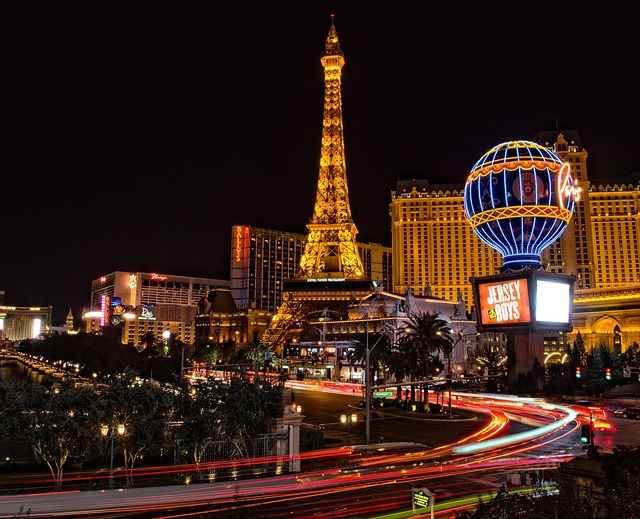Share This Article:

Case File
Did stopping off at a gift shop on her way home from a conference kill a worker's claim for benefits for an ankle injury? Simply Research subscribers have access to the full text of the decision.
Case
Costello v. Thompson Catering & Special Events, 2024 WL 4576290 (Ky. 10/24/24)
What Happened
An event manager for a catering company attended a conference in Las Vegas, with the company footing the bill for the entire trip. After the conference, the manager had some spare time between checking out of her hotel and boarding her return flight, so she stopped by the hotel's souvenir shop to buy gifts for her nieces and nephews. While leaving the shop, she tripped and fell down some stairs and injured her right ankle.
Although unable to return to her normal activities as an event manager, the manager worked briefly for the company as a receptionist but eventually left the job due to ongoing medical treatment on her ankle. The company voluntarily paid the manager $149,419.03 in medical benefits and $30,324.92 in temporary total disability benefits. The manager also received a settlement of $15,000 from the hotel.
The manager filed a claim for workers' compensation benefits, which an administrative law judge rejected, finding that she was engaged in a "distinct personal errand" that deviated from the course and scope of her work. After the ALJ denied the manager's petition for reconsideration, she appealed, and the court found in her favor. The company appealed to the Kentucky Supreme Court.
Rule of Law
Under the going and coming rule, injuries that occur while an employee is on the way to or from the worksite are not compensable, but there are exceptions, including the traveling employee doctrine, a derivative of the positional risk doctrine.
Under the positional risk doctrine, the law deems injuries to be work-related when the scope and course of employment has placed a worker in what turns out to be a dangerous situation.
The traveling employee exception applies where a worker's employment requires travel away from one's regular worksite, and it considers an injury that occurs while the employee is in travel status to be work-related unless the worker was engaged in a significant departure from the purpose of the trip.
The question courts must address when considering the traveling employee exception is where to draw the line between a "minor interlude," which is compensable, and a "significant departure," which is not.
Workers' Comp 101: Under a combination of the "enforced hiatus" and "personal comfort" doctrines, the Kentucky Supreme Court held in Meredith v. Jefferson Cnty. Prop. Valuation Adm'r, 19 S.W.3d 106 (Ky. 2000), that the traveling employee exception applied to an employee who was injured on a coffee break at a restaurant while waiting for a scheduled appointment to begin. This ruling recognized that while attending personal necessities and comfort like eating, drinking, and sleeping are invariably deemed to be compensable, so should a "certain amount of wandering around and even undertaking what otherwise might seem to be distinctively personal activities" during "lull-in-the-work" periods.
What the Kentucky Supreme Court Said
According to the court, the ALJ misapplied the traveling employee exception.
"At the time of her injury, [the manager] was essentially in a period of enforced hiatus while awaiting timely departure from the hotel for her return flight," the court wrote. "There is no indication in the present record that [the manager] ruptured the course of her employment deliberately by delaying her departure to pursue extended personal amusements, and '[t]here was no evidence that claimant's employer restricted [her] activities during such periods.'"
The case might have turned out differently had the manager taken an "unreasonable route" and exposed herself to "abnormally hazardous conditions" on her shopping errand. For example, in U.S. Bank Home Mortg. v. Schrecker, 455 S.W. 382 (Ky. 2014), coverage was denied to an injured employee who went for a late lunch and walked in front of a moving vehicle, "thereby voluntarily encountering hazards not foreseeably flowing from the conditions of employment nor part of normal going and coming from her work premises."
Takeaway
A brief personal errand, such as a trip to a gift shop for a few minutes while killing time before a departing flight, may meet the traveling employee exception to Kentucky's going and coming rule, particularly if the employee does not voluntarily encounter hazards not foreseeably flowing from the conditions of employment nor part of the normal going and coming from her work premises.
AI california case management case management focus claims compensability compliance courts covid do you know the rule emotions exclusive remedy florida FMLA fraud glossary check Healthcare health care hr homeroom insurance insurers iowa leadership medical NCCI new jersey new york ohio osha pennsylvania roadmap Safety state info technology texas violence WDYT what do you think women's history women's history month workcompcollege workers' comp 101 workers' recovery Workplace Safety Workplace Violence
Read Also
- Apr 24, 2025
- Frank Ferreri
- Apr 24, 2025
- Liz Carey
About The Author
About The Author
-
Frank Ferreri
Frank Ferreri, M.A., J.D. covers workers' compensation legal issues. He has published books, articles, and other material on multiple areas of employment, insurance, and disability law. Frank received his master's degree from the University of South Florida and juris doctor from the University of Florida Levin College of Law. Frank encourages everyone to consider helping out the Kind Souls Foundation and Kids' Chance of America.
More by This Author
Read More
- Apr 24, 2025
- Frank Ferreri
- Apr 24, 2025
- Liz Carey
- Apr 24, 2025
- Claire Muselman
- Apr 24, 2025
- Chris Parker
- Apr 24, 2025
- Anne Llewellyn
- Apr 23, 2025
- Claire Muselman




